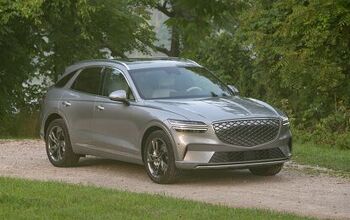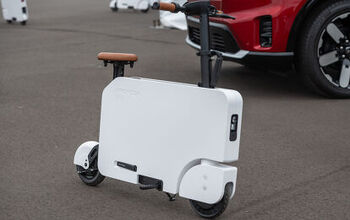3 Views
Bicycles Outselling Cars In Italy
by
Derek Kreindler
(IC: employee)
Published: October 3rd, 2012
Share
Italy once had one of the highest rates of car ownership in the world, with 60 cars for every 100 people. But in 2011, bicycles outsold cars for the first time in decades.
Derek Kreindler
More by Derek Kreindler
Published October 3rd, 2012 2:35 PM

































Comments
Join the conversation
Bicycles have outsold cars in the USA for the last few years. Probably this year too.
As a former BMX bike racer, and staunch car advocate, this saddens me. $9.60/gal for gas? Hell, i'd ride my bike the 15 miles to work instead of paying that insane amount. Granted, Italy is a lot more densely populated than NA, but still. Almost $10/gal is COMPLETELY INSANE. This is an unintended consequence of printing money that is backed by no hard asset (such as, gold). Might as well be spending Monopoly money now, the US$ and Euro are worth less and less every single day. That said, who will bail out the US and Europe when it all finally comes to a head? Mars? I can see the headline now: 'Martians approve $100t bailout for Earth in exchange for what is left of their brains'.....lol
Chinese go from bikes to cars, Western countries go the other way, I'm sorry, who did you say won the cold war? History books will have to be rewritten.
"According to wiki, more than 30% of Italian males over age 30 live in homes owned by their parents." This is more of a cultural phenomenon than one driven by economics -many if not most of these Italian "mama's boys" have very good jobs and income, drive nice cars and otherwise can afford their own flats. It's just that a lot of these families have very close and strong family ties.